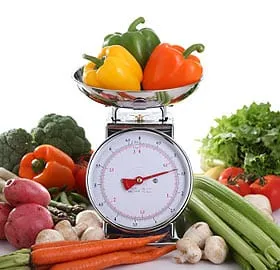If you are thinking about switching your meat based diet with a vegetarian or meatless diet then you must be concerned about the health factor. Vegetarian diet is generally taken up by the non vegetarians to lose weight which is a BIG answer of this question in itself. It is always advised to eat healthy in order to reduce weight and if vegetarian diet is not healthy then why it should be advised by the medical professionals. Vegetarian diet is a flexible approach of dietary practice because it includes plant based diet and little percentage of animal derived items except meat. Because of this variable nature of vegetarian diet, it is divided into four major categories on the basis of its content which are Lacto vegetarian, Lacto – ovo vegetarian, ovo vegetarian and vegan diet. The latter most category or the vegan diet is the strict form of vegetarian diet which excludes any kind of animal derived food.

Issues which raise concern about the health factor of vegetarian diet:
Vitamin A
– It is an important vitamin and occurs in high amounts in animal food like seafood, organ meat, eggs and dairy products. Plants contain beta carotene, the precursor of retinol (vitamin A) and a large amount of beta carotene to obtain a moderate amount of vitamin A. vegetarians except vegans can get enough amount of this vitamin by animal derived foods.
Vitamin B12
– This vitamin is very crucial for proper functioning of nervous system because it helps in formation of myelin sheath around the nerves for the conduction of nerves impulses. It works with folate in synthesis of DNA and red blood cells. It is present in animal meat in high amounts and can also be derived from fish, shellfish, poultry, eggs, milk and milk products. The first three categories of vegetarian diet easily get enough supply of this vitamin but vegans need to take supplements or plant sources like Japanese fermented black tea (Batabata – cha) and purple laver seaweed (Susabi-nori).
Vitamin D
– the essential vitamin for the bones can be synthesized by our skin but it requires cholesterol which can be obtained from animal derived food. Vegetarians except vegans have easy access to the rich sources of this vitamin in their food without killing any innocent animal in the process.
Calcium
– The calcium derived from plant sources are found to be difficult to process inside the body. On the other hand, calcium obtained from dairy and dairy products can be efficiently absorbed by the body as compared to the plant extracted calcium. Vegetarian food includes milk, milk products and eggs to compensate for the low percentage of this mineral in plants.
Iron
– The availability of this mineral is much lower than animal foods. Another problem with this mineral is that other substances such as tea, dairy products, and fiber and supplement calcium inhibit its absorption in the body. This problem can be easily avoided by taking dietary precaution during iron intake.
Zinc
– the plant sources which contain this mineral have been found to contain phylate, a chemical which inhibits the absorption of this mineral in the body. Studies shows that vegetarians need fifty percent more zinc than their meat eating counter parts therefore vegetarians should take extra care about this vital nutrient and include different sources of it to meet the requirements.
EPA and DHA
– These are long chain omega – 3 fatty acids important for proper growth and development of the human body. These nutrients also have therapeutic and protective use against diseases like cancer, asthma, depression, cardiovascular disease, ADHD, and autoimmune diseases, such as rheumatoid arthritis. Supplements are easily available in markets for these nutrients and one can include them in their diet with their doctor’s recommendations.
So we have seen so far that there is a difference between vegetarian and vegan diet. A person can get all the nutrients without eating meat and stay healthy which is the uniqueness of vegetarian diet.

